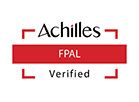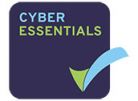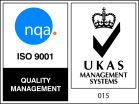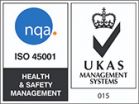In recent years, technology has profoundly transformed various aspects of our lives, and education is no exception. Modern technologies have revolutionized the way students learn, access information, and engage with their studies. Here’s how contemporary technological advancements are enhancing education and supporting student success:
1. Enhanced Access to Information
The internet has made information more accessible than ever before. Students can now access a vast array of resources, from academic journals and e-books to educational videos and interactive simulations. This wealth of information enables students to conduct more thorough research, gain deeper insights into their subjects, and stay updated with the latest developments in their fields of study.
2. Interactive Learning Tools and Services
Interactive learning tools such as educational apps, online quizzes, and virtual labs provide students with engaging ways to understand complex concepts. These tools often use gamification techniques to make learning more enjoyable and effective. For example, platforms like Khan Academy and Duolingo use interactive elements to teach subjects ranging from mathematics to foreign languages, enhancing retention and comprehension.
Also popular is assignment writing services. For example in this services each student can get nursing paper help, order essay or research paper, etc.
3. Personalized Learning Experiences
Modern educational technologies facilitate personalized learning, catering to the individual needs and learning styles of students. Adaptive learning platforms like DreamBox and Smart Sparrow adjust the difficulty of tasks and provide customized feedback based on a student’s performance. This tailored approach helps students learn at their own pace and address their unique strengths and weaknesses.
4. Virtual Classrooms and Online Collaboration
The rise of virtual classrooms and online collaboration tools has made education more flexible and accessible. Platforms such as Zoom, Microsoft Teams, and Google Classroom enable students to attend classes, participate in discussions, and collaborate on projects from anywhere in the world. This flexibility is particularly beneficial for remote or non-traditional learners who might otherwise face geographical or scheduling barriers.
5. Educational Games and Simulations
Educational games and simulations offer students interactive ways to apply their knowledge in realistic scenarios. These tools can help with skills ranging from problem-solving to critical thinking. For instance, simulation-based learning in fields like medicine and engineering allows students to practice and hone their skills in a virtual environment before applying them in real-world situations.
6. Data-Driven Insights for Educators
Technological tools also provide educators with valuable data-driven insights into student performance. Learning management systems (LMS) and educational analytics platforms allow teachers to track progress, identify areas where students may be struggling, and adjust their teaching strategies accordingly. This data-driven approach helps in creating more effective educational interventions and improving overall learning outcomes.
7. Assistive Technologies
Assistive technologies have made education more inclusive by supporting students with disabilities. Tools such as text-to-speech software, screen readers, and adaptive keyboards enable students with visual, auditory, or motor impairments to access educational materials and participate in classroom activities more effectively. These technologies help ensure that all students have equal opportunities to succeed in their educational pursuits.
8. Increased Engagement Through Multimedia
Multimedia resources like videos, podcasts, and interactive presentations enhance student engagement and understanding. Visual and auditory elements can make abstract concepts more tangible and relatable. For instance, educational videos on platforms like YouTube can provide visual explanations and demonstrations that complement traditional teaching methods.
Modern technologies have significantly enriched the educational landscape, offering students new tools and opportunities for learning. From enhancing access to information and personalizing learning experiences to fostering collaboration and providing assistive resources, technology plays a crucial role in supporting student success. As technology continues to evolve, it will undoubtedly bring even more innovations to education, further transforming how students learn and achieve their academic goals.








